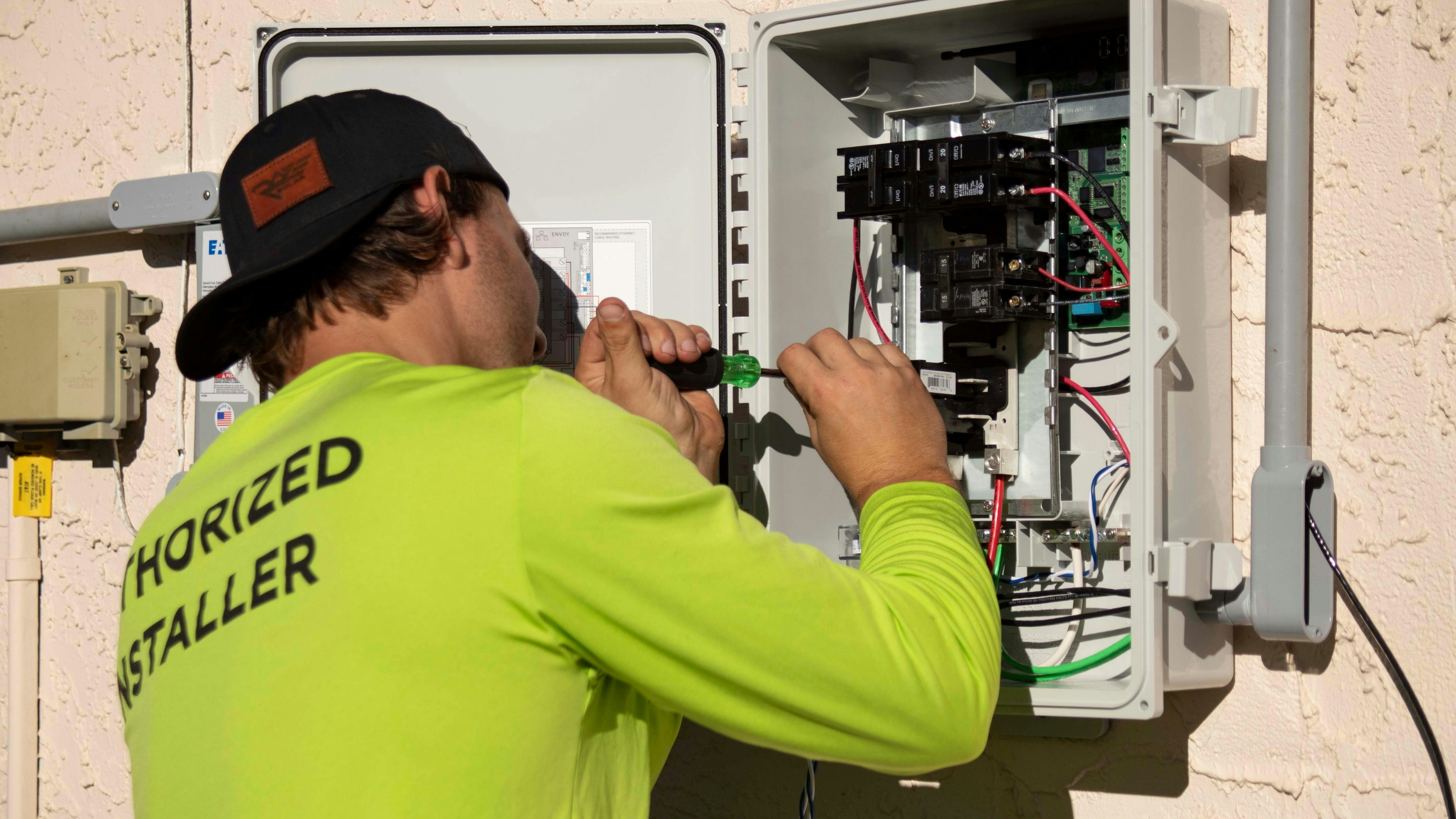Special Offers




Special Offers





Electrical wiring and installation in home construction encompass the process of strategically laying conductors to create a functional electrical system. This involves positioning outlets, switches, and circuit breakers throughout the structure. In India, adherence to national electrical codes ensures safety and reliability, with copper conductors commonly employed for efficient conductivity. Importance of electrical wiring and installation in home construction: The importance of electrical wiring and installation in home construction cannot be overstated. It forms the backbone of a safe and functional living space, facilitating essential daily activities. Properly installed wiring ensures a reliable power supply to appliances, lighting, and electronic devices. Adherence to safety codes is paramount to prevent hazards. Well-executed electrical work not only guarantees convenience but also contributes significantly to the overall safety and functionality of a home. Essential Considerations for Electrical Wiring and Installation in Home Construction in India In the dynamic landscape of home construction in India, careful planning and execution of electrical wiring are paramount for safety, functionality, and long-term reliability. Here are key considerations to ensure a robust electrical infrastructure: 1. **Compliance with Codes and Regulations:** Adhering to national and local electrical codes is the foundation of a safe electrical system. This involves understanding and implementing regulations set by authorities to guarantee the well-being of occupants and property. 2. **Selection of Appropriate Wiring Materials:** Opting for high-quality wiring materials, particularly copper conductors, ensures efficient conductivity and durability. Copper is a preferred choice for its reliability and longevity, reducing the risk of electrical issues over time. 3. **Strategic Placement of Outlets and Switches:** Careful planning of the placement of outlets, switches, and circuit breakers is essential for convenient access and optimal functionality. This should align with the layout and purpose of each space within the home. 4. **Consideration of Future Power Demands:** Anticipating future electrical needs is crucial. Designing the electrical system to accommodate potential upgrades or additional appliances ensures adaptability, preventing the need for extensive rewiring in the future. 5. **Skilled Electricians and Professional Installation:** Employing experienced and certified electricians is fundamental. Their expertise ensures proper installation, minimizing the risk of electrical faults or hazards. Professional installation also enhances the overall reliability and longevity of the electrical system. 6. **Quality of Electrical Fixtures and Devices:** Investing in high-quality electrical fixtures, switches, and outlets contributes to the overall reliability of the system. Choosing reputable brands and durable components ensures the longevity of the electrical infrastructure. 7. **Regular Inspections and Maintenance:** Conducting regular inspections and maintenance checks is essential for identifying potential issues before they escalate. Routine upkeep ensures that the electrical system continues to function optimally, reducing the risk of unexpected failures. 8. **Grounding and Surge Protection:** Implementing proper grounding techniques and surge protection mechanisms guards against electrical surges, protecting sensitive electronic devices and appliances. This is particularly crucial in areas prone to fluctuations in power supply. 9. **Energy Efficiency Considerations:** Incorporating energy-efficient lighting and appliances contributes not only to reduced utility bills but also to a more sustainable and environmentally friendly home. This aligns with the growing emphasis on eco-friendly construction practices. 10. **Documentation and Record-Keeping:** Maintaining detailed records of the electrical layout, components used, and any modifications made over time is valuable for troubleshooting and future renovations. This documentation aids in efficient problem-solving and upgrades. FAQs for electrical wiring and installation in home construction: **1. What type of wiring material is recommended for home construction in India?** *Answer:* Copper conductors are highly recommended for electrical wiring in homes in India due to their superior conductivity, durability, and ability to withstand the environmental conditions prevalent in the region. **2. How can I ensure that my electrical installation complies with safety standards in India?** *Answer:* Ensuring compliance involves hiring certified electricians, adhering to national and local electrical codes, and obtaining necessary approvals from relevant authorities. Regular inspections and adherence to safety regulations are crucial for a safe electrical system. **3. What factors should I consider when planning the placement of electrical outlets and switches?** *Answer:* Strategic placement of outlets and switches should align with the functional needs of each space. Consider factors such as furniture arrangement, convenience, and future usage to optimize the layout and enhance overall usability. **4. Is it necessary to plan for future power demands during the initial electrical wiring process?** *Answer:* Yes, anticipating future power needs is essential. Designing the electrical system to accommodate potential upgrades or additional appliances ensures adaptability and prevents the need for extensive rewiring in the future. **5. How often should I schedule inspections for my home's electrical system?** *Answer:* Regular inspections should be conducted annually or as recommended by certified electricians. Routine checks help identify potential issues, ensure compliance with safety standards, and maintain the overall reliability of the electrical infrastructure in your home. Conclusion In conclusion, meticulous planning, adherence to regulations, and the employment of skilled professionals are key to successful electrical wiring and installation in home construction in India. By considering these factors, homeowners can ensure a safe, reliable, and future-ready electrical infrastructure for their residences.
Explore the key steps of Home Construction from concept to completion